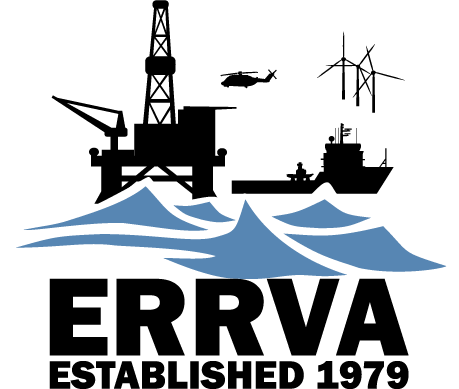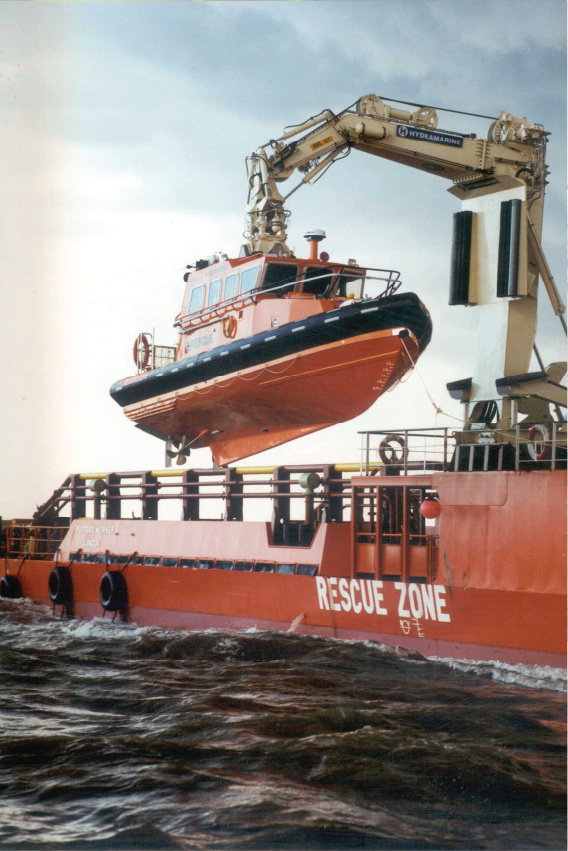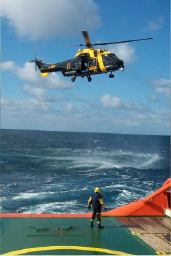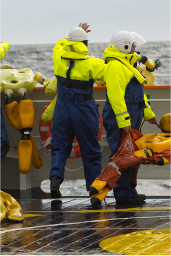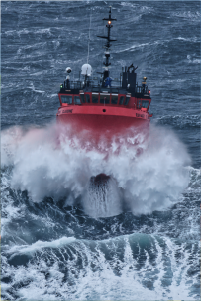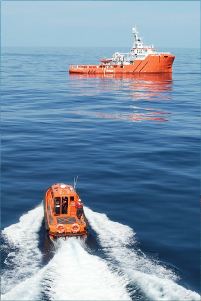Emergency
The role of the ERRV (Emergency Response and Rescue Vessel) is like any emergency service being always ready for situations that everyone hopes will never occur. ERRV crews must be specially trained and well-practiced in the specific skills needed for rescue operations.
Specialist Areas
Each ERRV is equipped with specialised areas within the accommodation to provide medical care for offshore workers recovered from the water, whether injured or uninjured. Additionally, there is a helicopter winching zone for transferring critically injured individuals onshore for intensive care.
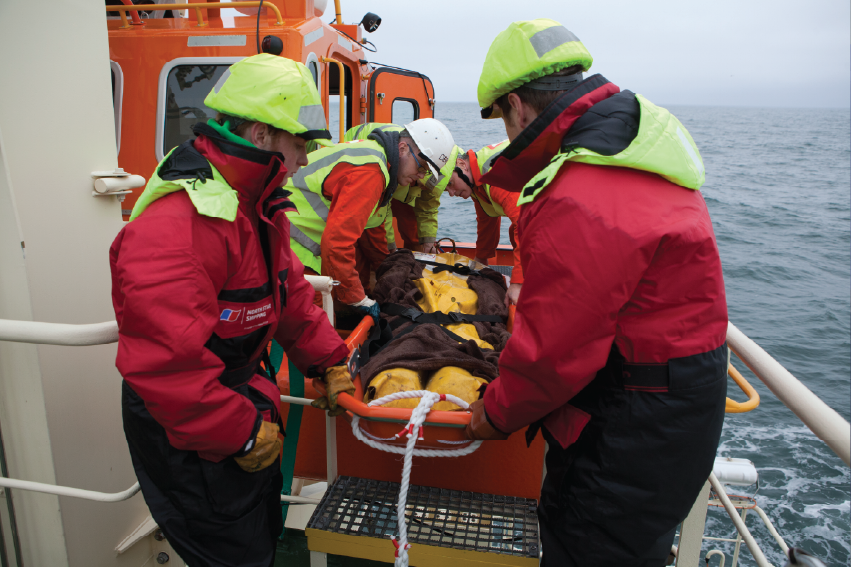
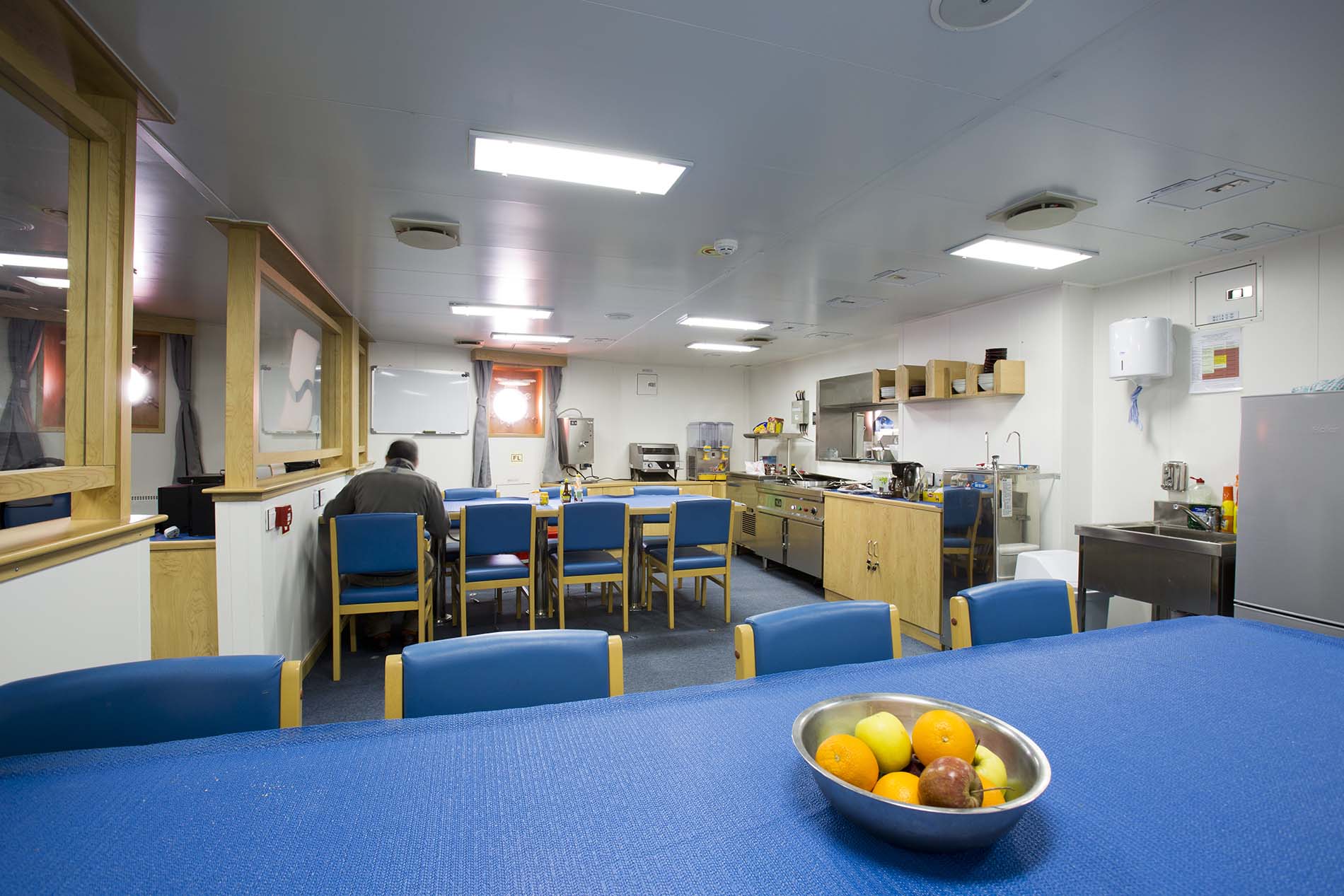
Crew Numbers
Typically, each ERRV has a crew of 12, allowing for the simultaneous launch of two Fast Rescue Craft (FRC). This includes at least one person trained in Advanced Medical Aid, two FRC Coxswains, and four FRC Boatmen. Some ERRVs carry three Rescue Craft and have a crew of 15, including 2 Advanced Medical Aiders, 3 Coxswains, and 6 Boatmen.
Time Offshore
Each ERRV remains “on station” for up to 28 days before returning to its home port for crew change and resupply. During this time, a relief ERRV ensures continuous rescue and collision risk management coverage. Crew members work offshore for twenty-eight days, followed by twenty-eight days off.
Qualifications and Training
All crew members receive training appropriate to their roles, in accordance with Statutory Requirements laid down in STCW as a qualifying standard, along with additional industry requirements specified by OPITO in Training Standards.
Specialist training is required for roles such as FRC Boatman, FRC Coxswain, Daughter Craft Coxswain, Advanced Medical Aid, and Command and Control for Masters and Mates. A Continuous Professional Development program ensures ongoing, onboard training in all aspects of emergency response and recovery and rescue operations, primarily through scenario-based exercises and video-based medical training.
Medicals
All crew members must undergo medical examinations to MCA standards: every 2 years up to age 50, annually from age 51 to 60, and every 6 months for those over 60. The age limit for crew members is typically 65.

Discover More
Offshore emergency response vessels (ERRV) play a pivotal role in ensuring safety and operational efficiency in maritime environments. From adhering to guidelines to offering essential services, ERRVA’s contributions are multifaceted and indispensable. Discover more about how ERRVA keeps the offshore sector secure and efficient
